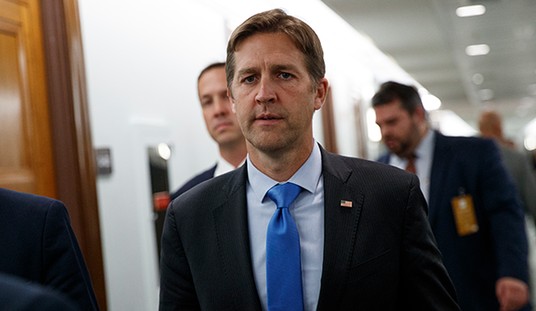It would be understandable for those who closely follow politics to have missed Republican Senator Olympia Snowe’s comments on health care a couple of days ago.
The second week of September was an unusually big week for partisan politics (and that’s saying something in this day and age). Commentators on both sides of the divide sparred bitterly over the crowd estimates for the massive 9/12 Taxpayer March on the National Mall. In addition, the drip, drip, drip of scandalous revelations surrounding the ACORN “prostitution sting” further strained the lengths of recent political polarization. And as the weekend neared, allegations of racist opposition to President Barack Obama’s policies — aired by former President Jimmy Carter, no less — had further dashed the longstanding hopes for bipartisan cooperation that followed Barack Obama’s inauguration in January.
Given all that, Senator Snowe’s mid-week remarks on her place in a changing GOP might seem tame. Snowe, a moderate Republican and senior senator from Maine, stated that “I haven’t changed as a Republican, I think more that my party has changed.” The comments came in an interview with John Harwood on CNBC. Citing the full quotation might be a useful background for the analysis that follows. Asked why she was a Republican, she answered:
Well, you know, it’s — I’ve always been a Republican for the traditional principles that have been associated with the Republican Party since I, you know, became a Republican when I registered to vote. And that is limited, you know, limited government, individual opportunities, fiscal responsibility, and a strong national defense. So I think that those principles have always been a part of the Republican Party heritage, and I believe that I, you know, reflect those views. And I haven’t changed as a Republican, I think more that my party has changed.
The context for Snowe’s partisan affirmation is her target as a potential — and crucial — GOP vote for the president’s ObamaCare legislation. Snowe has been on record as opposing the “public option” provision that would create a government-sponsored insurance “exchange” to compete with private companies. (On the left, some hope that a “robust” public option will eventually form a “single-payer” nationalized system of universal health care). In fact, the public option has become the face of “socialized medicine” for conservatives throughout the year. And, as the administration has essentially squandered its political capital on a measure that’s ostensibly marginal to its oft-stated claims of lowering costs, increasing efficiency, and guaranteeing affordability, the defeat of health care reform has remained a not improbable outcome these last few months.
But in the last couple of weeks a new proposal by Senator Max Baucus of Montana has rekindled Democratic prospects for the passage of landmark legislation. The Baucus bill drops the public option but mandates that all Americans purchase health insurance coverage. The measure also would prohibit insurance companies from denying coverage to those with a pre-existing condition. A number of top senators oppose the Baucus measure (Mitch McConnell of Kentucky, Ron Wyden of Oregon, etc.), but Senator Snowe has been sympathetic. And as a key member of Baucus’ Senate Finance Committee, many are looking to Snowe as the one GOP vote needed to pry the legislation out of committee.
And that’s the problem. It turns out that Senator Snowe is coming under intense pressure from the Senate GOP caucus to vote against the Democrats on health care. As Democratic Senator Jay Rockefeller was quoted with regards to Senator Snowe’s vote:
I think the world of Olympia Snowe. She’s got incredible courage, and the Republican leadership is brutal in the way they apply pressure. Much more so than the Democrats. …
They bring the hammer down on her, and I’m not going to say how. She’s very strong, and she represents a very rural state that has gone blue. So I don’t know what she’s going to do, and I’ll respect her whatever she does.
Rockefeller is hush-hush on the “hammer” he refers to, but Snowe will stand for reelection in 2012, a presidential election year (and referendum on the Obama administration). It’s likely that Snowe is hearing whispers of a possible GOP primary challenge (as is suggested here); and recall that when Pennsylvania’s Pat Toomey was pegged as increasingly likely to pick off Senator Arlen Specter in the state’s GOP primary next year, the latter left the GOP to caucus with the Democrats.
It is thus a dangerous environment for moderate Republicans thinking about bucking the party orthodoxy. Snowe’s case signals the long secular decline of “Rockefeller Republicans” in American politics. These GOP moderates took their name from former New York Governor Nelson Rockfeller, who led the “liberal wing” of the GOP until 1964, when the “Rockefeller Republican” brand was vanquished by the conservative ascendancy in Barry Goldwater’s presidential nomination. With the election of Ronald Reagan in 1980, the moderate wing of the GOP became increasingly marginalized. As of 2008, congressional Republicans faced near extinction in the Northeast. As Ronald Brownstein noted at the time of Senator Specter’s defection to the Democrats:
In 1988, George H.W. Bush won eight of the 11 states from Maryland to Maine. Even as recently as 2000, Republicans won 40 percent of the House seats and held eight of the 22 Senate seats from those states. But amid the younger Bush’s polarizing, Southern-inflected conservatism, Northeastern Republicans fell through the floorboards: They now hold only 18 percent of the region’s House seats and, since Specter’s switch, just three of its 22 Senate seats.
It will be interesting to see how things play out for Senator Snowe and the Democratic health care bill. If Snowe toes the line with the GOP caucus, Democrats will fall short of the 60 votes they’ll need to avoid the filibuster. In that case, the party will likely attempt to pass the bill using the reconciliation process, which will look like parliamentary strong-arm tactics. The victory will be precarious and will provide volatile campaign fodder in upcoming elections.
Events will likely provide a turning-point for Snowe no matter what happens. As a social moderate who favors choice on abortion, gun control, and same-sex marriage, she voted against the Bush tax cuts in 2003 and for the Obama stimulus in 2009. That’s not the kind of record that fires up the GOP base or the tea party activists who have led the resurgence of libertarianism all year.
As Rob at Say Anything noted with regard to Senator Snowe’s suggestion that she hadn’t “changed as a Republican”:
Is the GOP leaving Snowe behind? I hope so. Snowe represents big-government Republicanism. Snowe represents finger-in-the-wind Republicanism the adherents of which do whatever they think is necessary to cling to power instead of sticking to principle.
Snowe hasn’t limited government or promoted fiscal responsibility while in office, and neither have many of her fellow Republicans which is why their party isn’t in power any more. If the GOP wants back into power they have to leave people like Snowe behind.
No doubt someone is going to be left behind. And given the examples of increasing ideological polarization we’ve seen this month, it’s likely that potential attacks on Snowe as “RINO” may well force her to leave the party, bowing to the increasingly monochromatic ideology of today’s GOP.









Join the conversation as a VIP Member